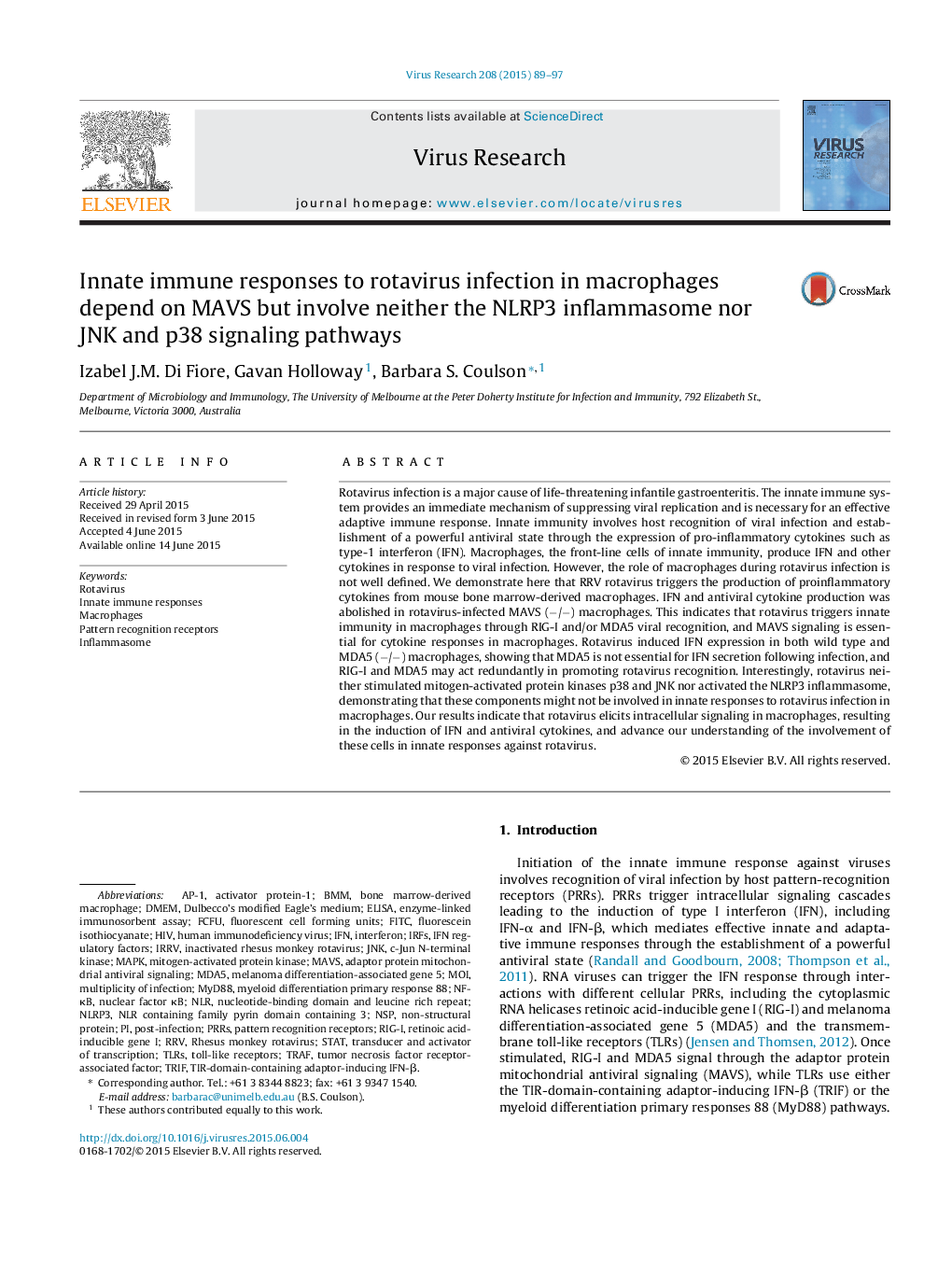| کد مقاله | کد نشریه | سال انتشار | مقاله انگلیسی | نسخه تمام متن |
|---|---|---|---|---|
| 3428118 | 1594349 | 2015 | 9 صفحه PDF | دانلود رایگان |

• Macrophages are permissive to RRV rotavirus infection.
• Rotavirus infected-macrophages display robust IL-6 and IFN-β expression.
• Rotavirus-induced cytokine production by macrophages relies on MAVS signaling.
• MDA5 is unnecessary or redundant for innate recognition of RRV in macrophages.
• Innate macrophage responses to RRV do not involve the inflammasome or JNK/p38.
Rotavirus infection is a major cause of life-threatening infantile gastroenteritis. The innate immune system provides an immediate mechanism of suppressing viral replication and is necessary for an effective adaptive immune response. Innate immunity involves host recognition of viral infection and establishment of a powerful antiviral state through the expression of pro-inflammatory cytokines such as type-1 interferon (IFN). Macrophages, the front-line cells of innate immunity, produce IFN and other cytokines in response to viral infection. However, the role of macrophages during rotavirus infection is not well defined. We demonstrate here that RRV rotavirus triggers the production of proinflammatory cytokines from mouse bone marrow-derived macrophages. IFN and antiviral cytokine production was abolished in rotavirus-infected MAVS (−/−) macrophages. This indicates that rotavirus triggers innate immunity in macrophages through RIG-I and/or MDA5 viral recognition, and MAVS signaling is essential for cytokine responses in macrophages. Rotavirus induced IFN expression in both wild type and MDA5 (−/−) macrophages, showing that MDA5 is not essential for IFN secretion following infection, and RIG-I and MDA5 may act redundantly in promoting rotavirus recognition. Interestingly, rotavirus neither stimulated mitogen-activated protein kinases p38 and JNK nor activated the NLRP3 inflammasome, demonstrating that these components might not be involved in innate responses to rotavirus infection in macrophages. Our results indicate that rotavirus elicits intracellular signaling in macrophages, resulting in the induction of IFN and antiviral cytokines, and advance our understanding of the involvement of these cells in innate responses against rotavirus.
Figure optionsDownload as PowerPoint slide
Journal: Virus Research - Volume 208, 2 October 2015, Pages 89–97